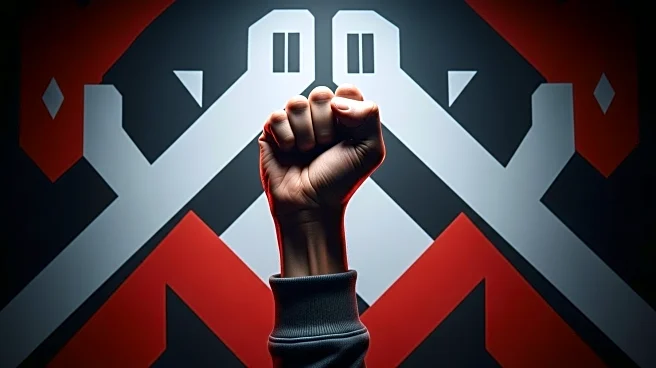What is the story about?
What's Happening?
Young people worldwide are increasingly taking to the streets, leading a wave of Gen Z-led protests across various continents and causes. These protests are driven by issues such as corruption, economic hardship, failing public services, and restrictions on digital freedoms. The movement is characterized by its decentralized nature, with social media playing a crucial role in organizing and communicating across borders. In Peru, protests against President Dina Boluarte and Congress have highlighted dissatisfaction with corruption and stalled reforms. In Madagascar, protests over power outages and water shortages have led to significant political changes, including the dissolution of the government. Similar movements are occurring in Morocco, Nepal, the Philippines, Timor-Leste, Kenya, Indonesia, Serbia, and Bangladesh, each with unique local grievances but united by a common demand for accountability and reform.
Why It's Important?
The rise of Gen Z protests signifies a shift in political dynamics, as a digitally connected generation challenges traditional power structures. These movements highlight the growing political influence of young people who have grown up in an era of economic precarity and environmental uncertainty. The decentralized nature of these protests, facilitated by social media, allows for rapid mobilization and solidarity across borders. Governments are finding it increasingly difficult to respond to these movements, as local grievances can quickly escalate into nationwide unrest. The protests underscore the potential for youth activism to drive significant political change, as seen in Nepal, where a social media-sparked uprising led to the resignation of the prime minister.
What's Next?
The momentum behind these Gen Z movements shows no signs of slowing down. In countries where grievances meet weak state capacity or entrenched corruption, young people are likely to continue challenging authority. Some governments, like those in Nepal and Kenya, have already made concessions, while others, such as Indonesia and Morocco, continue to face unrest. The decentralized and digitally connected nature of Gen Z activism means that these movements can quickly reignite, making it crucial for policymakers, investors, and civil society groups to monitor these developments closely.















